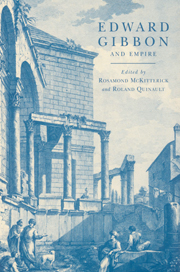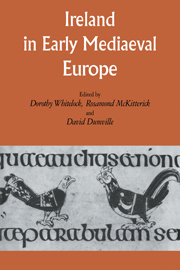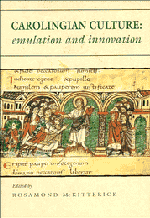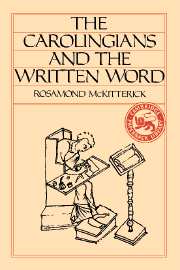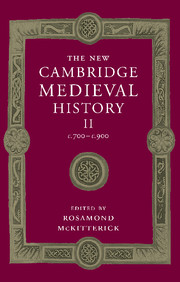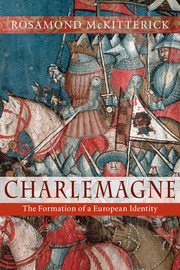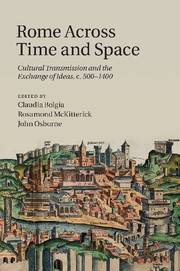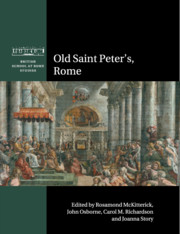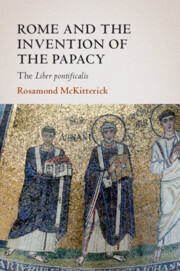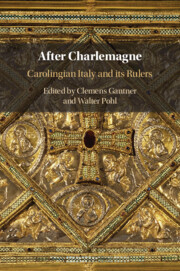The Resources of the Past in Early Medieval Europe
- Editors:
- Clemens Gantner, Österreichische Akademie der Wissenschaften, Wien
- Rosamond McKitterick, University of Cambridge
- Sven Meeder, Radboud Universiteit Nijmegen
- Date Published: November 2019
- availability: Available
- format: Paperback
- isbn: 9781107463820
Paperback
Other available formats:
Hardback, eBook
Looking for an inspection copy?
This title is not currently available on inspection
-
This volume analyses the importance of history, the textual resources of the past and the integration of Christian and imperial Rome into the cultural memory of early medieval Europe within the wider question of identity formation. The case studies in this book shed new light on the process of codification and modification of cultural heritage in the light of the transmission of texts and the extant manuscript evidence from the early Middle Ages. The authors demonstrate how particular texts and their early medieval manuscript representatives in Italy, Francia, Saxony and Bavaria not only reflect ethnic, social and cultural identities but themselves contributed to the creation of identities, gave meaning to social practice, and were often intended to inspire, guide, change, or prevent action, directly or indirectly. These texts are shown to be part of a cultural effort to shape the present by restructuring the past.
Read more- Investigates the role played by the resources of the past in forming the identities of communities in early medieval western Europe
- Includes analysis of the transmission of texts and of manuscript evidence and makes new primary source material available for the first time
- Offers a new perspective on the notion of 'cultural memory' by considering how particular texts and their early medieval manuscript representatives reflect and shape ethnic, social and cultural identities
Reviews & endorsements
'This coherent collection focuses on the collection, formation, and management of the distant (classical and patristic) and the more recent past through processes of selective transmission, suppression, and rewriting of this heritage in the early Middle Ages. They are an important contribution to our understanding of the importance of biblical and patristic texts and the core significance of the Eusebius-Jerome tradition to create useful cultural memories, but also the malleability of these texts at the hands of authors and compilers.' Patrick J. Geary, Institute for Advanced Study, Princeton
See more reviews'This wide-ranging collection of essays is an important contribution by medievalists to the conceptual debates about cultural and collective memory more commonly conducted with reference to later centuries. It will be of great value to all those interested in text history as well as historical writing in the early Middle Ages.' Julia Smith, University of Glasgow
'As ample a subject as 'the resources of the past' spanning the fourth century to the eleventh is appropriately given a team-treatment in this timely and stimulating volume. The authors, ranging from doctoral students to some senior figures in the field, bring richly varied resources of their own to bear. They tackle many texts, ranging from fairly obscure to much-studied, finding and testing new approaches. The effect is one of illumination across the earlier medieval period.' Jinty Nelson, King's College London
'This book gives us an exciting and creative rereading of the issues involved in how to use the concept of cultural memory in actual historical analysis. It will be a new starting-point for medieval debate.' Chris Wickham, University of Oxford
'The natural complement to Hen and Innes' volume The Uses of the Past in the Early Middle Ages (Cambridge, 2000), The Resources of the Past in Early Medieval Europe focuses more tightly on which, whether, and why, quarries of past knowledge were used, and how this knowledge was transformed in the process of its appropriation and transmission. Moving from inference to implication, the collection's contributors demonstrate that such transformations were not the accidents of mindless copyists stolidly passing along an unbidden bequest, but the product of deliberate, considered choices about the past made for present and future needs. [This book] forcefully reminds us that to view a profile of Carolingian culture we must simultaneously see it as Janus-faced and take it at face value.' Courtney M. Booker, University of British Columbia
'This innovative and stimulating volume offers a remarkable synthesis of the research directions pursued by its senior contributors over the last two decades. Yet most importantly, this volume demonstrates how a careful study of minor texts and their manuscript transmission can contribute to the social and political history of the early medieval west by diving deeper into Carolingian cultural practices.' Warren Pezé, Early Medieval Europe
'Over the course of four thematic sections ('Learning Empire', 'The Biblical Past', 'Changing Senses of the Other from the Fourth to the Eleventh Century' and 'The Migration of Cultural Traditions in Early Medieval Europe'), the fifteen essays in this collection provide case studies of the ways in which early medieval authors drew upon the textual resources of the past to inform the present.' Scott G. Bruce, The Journal of Ecclesiastical History
Customer reviews
Not yet reviewed
Be the first to review
Review was not posted due to profanity
×Product details
- Date Published: November 2019
- format: Paperback
- isbn: 9781107463820
- length: 370 pages
- dimensions: 150 x 225 x 20 mm
- weight: 0.54kg
- contains: 5 b/w illus.
- availability: Available
Table of Contents
Introduction: cultural memory and the resources of the past Walter Pohl and Ian Wood
Part I. Learning Empire:
1. Creating cultural resources for Carolingian rule: historians of the Christian empire Walter Pohl
2. Cassiodorus's Historia tripartita before the earliest extant manuscripts Desirée Scholten
3. Politics and penance: transformations in the Carolingian perception of the conversion of Carloman (747) Erik Goosman
4. Lessons in leadership: Constantine and Theodosius in Frechulf of Lisieux's Histories Graeme Ward
Part II. The Biblical Past:
5. Carolingian political discourse and the biblical past: Hraban, Dhuoda, Radbert Mayke de Jong
6. Biblical past and canonical present: the case of the Collectio 400 capitulorum Sven Meeder
7. Divine law and imperial rule: the Carolingian reception of Junilius Africanus Marianne Pollheimer
8. Framing Ambrose in the resources of the past: the late antique and early medieval sources for a Carolingian portrait of Ambrose Giorgia Vicino
Part III. Changing Senses of the Other from the Fourth to the Eleventh Centuries:
9. Pagans, rebels and Merovingians: otherness in the early Carolingian world Richard Broome
10. Who are the Philistines? Bede's readings of Old Testament peoples Ian Wood
11. Gens perfida or populus Christianus? Saxon (in)fidelity in Frankish historical writing Robert Flierman
12. Fragmented identities: otherness and authority in Adam of Bremen's History of the Archbishops of Hamburg-Bremen Timothy Barnwell
Part IV. The Migration of Cultural Traditions in Early Medieval Europe:
13. Transformations of the Roman past and Roman identity in the early Middle Ages Rosamond McKitterick
14. The eighth-century papacy as cultural broker Clemens Gantner
15. Transformations of Late Antiquity: the writing and re-writing of church history at the monastery of Lorsch, c.800 Helmut Reimitz
Conclusion Mayke de Jong and Rosamond McKitterick
Bibliography
Index.
Sorry, this resource is locked
Please register or sign in to request access. If you are having problems accessing these resources please email [email protected]
Register Sign in» Proceed
You are now leaving the Cambridge University Press website. Your eBook purchase and download will be completed by our partner www.ebooks.com. Please see the permission section of the www.ebooks.com catalogue page for details of the print & copy limits on our eBooks.
Continue ×Are you sure you want to delete your account?
This cannot be undone.
Thank you for your feedback which will help us improve our service.
If you requested a response, we will make sure to get back to you shortly.
×
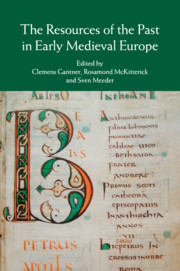
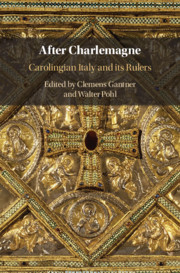
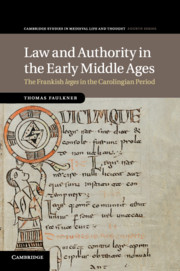
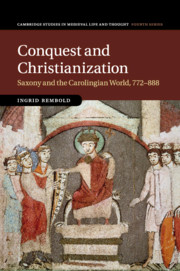
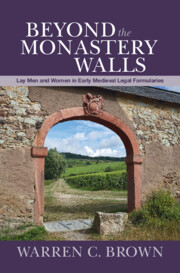
.jpg)
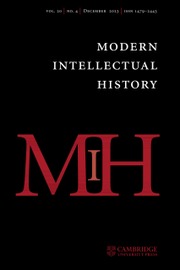
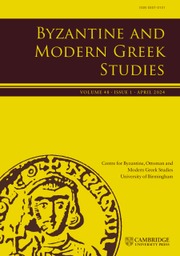
.jpg)

